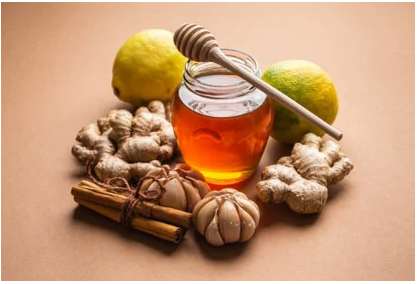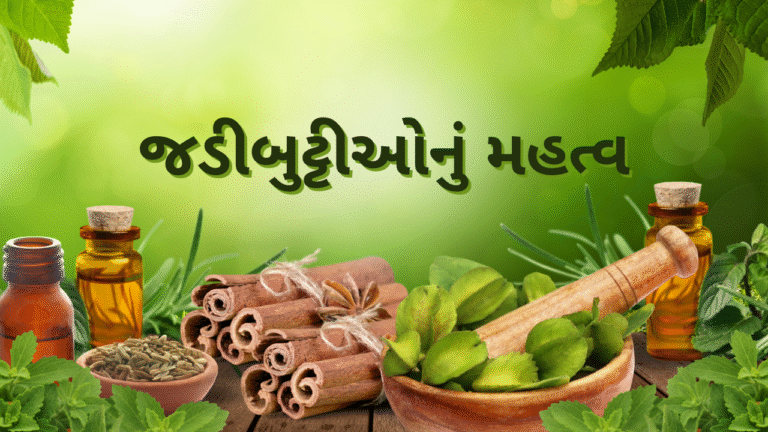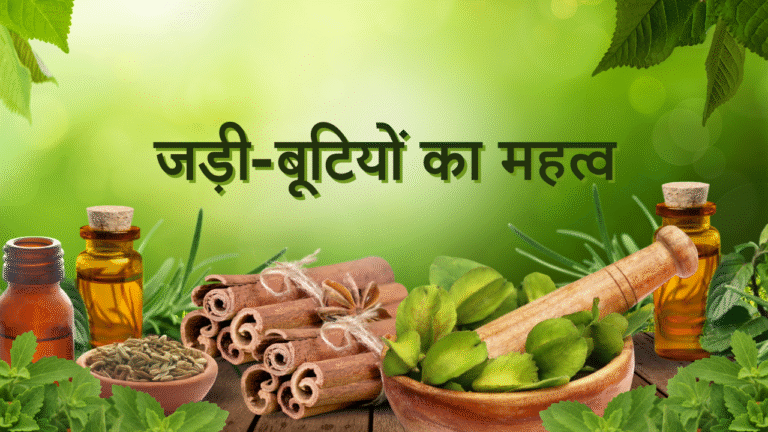Part 2 Rainy season Disease & prevention
Importance of the Rainy Season and Common Seasonal Diseases

The rainy season, or monsoon, is a crucial period for all living beings on Earth. This season is not only vital for agriculture and replenishing water sources but also plays a significant role in providing us with clean, drinkable water. The phrase “Jal hi jeevan hai” (Water is life) aptly captures its importance. With the onset of monsoon, we receive ample rainwater, which can be stored in lakes and reservoirs to be used throughout the year. This abundance of water is a blessing for humanity, as water and air (oxygen) are essential for our survival. We can endure long periods without food, but without water and oxygen, our survival is compromised.
As humans, our bodies are composed of the five elements of nature, and each season brings changes that our bodies must adapt to. A healthy body with a strong immune system can naturally adjust to these climatic changes. However, during the rainy season, the risk of infections and diseases increases, especially for those with lower immunity or certain health conditions.
Common Diseases in the Rainy Season
During the rainy season, there is a higher prevalence of infections and viral fevers. Some of the common diseases that people may encounter include:
- Dengue Fever: Caused by the Aedes mosquito, symptoms include high fever, severe headache, pain behind the eyes, joint and muscle pain, and rash. Preventive measures include using mosquito repellents, wearing protective clothing, and eliminating standing water where mosquitoes breed.
- Malaria: Another mosquito-borne disease, malaria is caused by the Plasmodium parasite. Symptoms include fever, chills, and flu-like illness. Prevention involves using mosquito nets, repellents, and taking antimalarial medications if recommended.
- Leptospirosis: This bacterial infection is spread through water contaminated by the urine of infected animals. Symptoms include high fever, headache, chills, muscle aches, vomiting, jaundice, and red eyes. Preventive measures include avoiding contact with contaminated water and using protective footwear.
- Viral Fever: Various viruses cause viral fevers, leading to symptoms like fever, body aches, fatigue, and headache. Good hygiene practices, proper rest, and hydration can help prevent these infections.
- Gastrointestinal Infections: Contaminated food and water can lead to infections like cholera, typhoid, and gastroenteritis. Symptoms include diarrhea, vomiting, abdominal pain, and fever. Preventive measures include drinking clean water, eating hygienically prepared food, and practicing good hand hygiene.
The Role of Home Remedies and Medical Attention
While many of these infections can be managed with home remedies and kitchen tips, some cases may require medical attention. Home remedies such as herbal teas, steam inhalation, and consuming immune-boosting foods can be effective for mild symptoms. However, if symptoms persist or worsen, it is essential to seek medical advice to prevent complications.
In conclusion, the rainy season is a blessing for humanity, providing essential water for our survival. However, it also brings an increased risk of infections and diseases. By taking preventive measures, maintaining good hygiene, and boosting our immunity, we can enjoy the benefits of the monsoon while staying healthy.
Seasonal Health Tips and Managing Common Diseases During the Monsoon
In our previous lecture, we discussed five types of diseases and their prevention methods. Today, we will delve into other common diseases that people often encounter, particularly during the rainy season. Before we begin, it’s important to acknowledge the significance of the rainy season. As we all know, this season is crucial for everyone living on Earth, providing us with essential water resources. The monsoon brings rain, replenishing our lakes and reservoirs, ensuring an adequate supply of drinking water throughout the year. This season is a blessing, as it provides us with two vital elements: water (jal) and air (vayu). While we can survive for an extended period without food, it is impossible to live without water and oxygen.
The Role of Dinacharya and Rutucharya in Monsoon
Our ancient sages, Rishi Munis, including Vaghbhat and Charak Rishi, emphasized the importance of following specific routines, known as Dinacharya and Rutucharya, according to the season. During the monsoon, our digestive fire (Agnimandya) is typically low, making it crucial to choose foods that are easy to digest. It is essential to ensure that the food consumed is fully digested before taking another meal. Due to low digestive fire, it is more important to consider when to eat rather than what to eat. Allow a minimum of four hours between meals to give the digestive system adequate time to process the food.
Common Digestive Issues and Dietary Recommendations

During the monsoon, digestive disorders such as gas, bloating, and indigestion are common, especially due to the aggravation of Vata dosha. To manage these issues, it is recommended to consume older grains like barley, rice, jowar, and wheat, as they are easier to digest. Incorporate green or yellow moong dal into your diet, as these are low in calories, high in protein, and easy to digest. Additionally, using specific spices such as hing (asafoetida), cumin seeds (jeera), curry leaves (kadipatta), and cloves (long) in your cooking can help enhance digestion and improve the taste of your meals.
- Cooking Tips and Food Preparation
When preparing food, use ghee instead of oil for tempering (tadka) your dal or vegetables. Ghee, when used in moderation, does not increase cholesterol levels and aids in digestion. It is also beneficial for muscle and bone health. Avoid deep-frying foods; opt for shallow frying or roasting instead. Sattu, made from roasted chana, is a highly nutritious ingredient commonly used in Bihar and can be used to prepare various dishes.
- Spices and Herbs for Digestion
Certain spices and herbs can aid digestion and prevent digestive issues. Fennel seeds (saunf) and carom seeds (ajwain) are excellent for improving digestion and can be consumed after meals as a mouth freshener. Additionally, black salt and black pepper can be used in roasted chana for a healthy snack option.
- Fasting and its Benefits
Fasting during the monsoon season is an important practice in many cultures, particularly during the month of Shravan. Fasting or following a mono-diet (one meal a day) helps give rest to the digestive system, allowing the body to rejuvenate and detoxify. This practice aligns with the scientific understanding that digestion is weaker during this season, and fasting can help maintain metabolic balance.
- Specific Vegetables to Include and Avoid
During the monsoon, it is advisable to avoid leafy vegetables as they are high in fiber and can be difficult to digest. Instead, focus on vegetables like lady fingers (bhindi), bottle gourd (lauki), and sponge gourd (tori), which are easier to digest. Bitter gourd (karela) is particularly beneficial for improving digestion. When consuming leafy vegetables, ensure they are properly cooked to make them easier to digest.
Ayurvedic and Naturopathic Practices for Monsoon Health

Introduction:
In ancient times, our rishi-munis like Wagh Bhatt and Charak Rishi provided guidelines for daily and seasonal routines, known as Dinacharya and Rutucharya. These practices are particularly important during the monsoon season. Monsoon, characterized by a low digestive fire (Agnimandya), requires specific dietary and lifestyle adjustments to maintain health and prevent disease.
Dietary Guidelines:
- Easily Digestible Foods:
- During monsoon, the digestive fire is weak. It’s crucial to consume foods that are easy to digest, such as pre-digested foods.
- Ensure the previous meal is fully digested before consuming the next. Maintain a minimum of four hours between meals to prevent digestive disorders.
- Aged Grains:
- Use grains stored for at least a year, such as barley, rice, jowar, and wheat, as they are easier to digest.
- Opt for green or yellow moong dal, which is low in calories and easy to digest.
- Spices and Cooking Oils:
- Use spices like hing (asafoetida), cumin seeds, curry leaves, and cloves to enhance digestion and flavor.
- Prefer ghee over oil for cooking, as it aids digestion and does not increase cholesterol when used in moderation.
- Vegetables:
- Focus on vegetables like lady fingers, bottle gourd, sponge gourd, and bitter gourd, which are easy to digest and beneficial for this season.
- Avoid leafy vegetables high in fiber, as they can be heavy on the digestive system.
- Taste Preferences:
- In monsoon, consume foods with sweet, sour, and salty tastes in moderation. Minimize bitter and spicy foods to improve digestion and reduce Vata aggravation.
Naturopathic Therapies:
- Panchakarma and Detoxification:
- Follow Panchakarma therapies, especially Anima (enema) using herbal water or buttermilk, for cleansing the bowels and intestines.
- Use Giloy and Neem juice for Vata shaman and detoxification.
- Regularly perform warm water enema to detoxify and rejuvenate the body.
- Body Massage and Ubtan:
- Get a full-body massage at least once a month using herbal oils (avoid coconut oil). Use oils like sesame oil or Maha Narayan Tel for muscle and bone health.
- Post-massage, take a steam bath and apply Ubtan made from milk cream and turmeric powder for skin rejuvenation.
Lifestyle Tips:
- Rest and Sleep:
- Avoid deep sleep during the daytime, especially in the afternoon, to prevent Vata aggravation. Short naps or resting in a lying-down position is recommended.
- Footwear and Clothing:
- Wear proper footwear to prevent infections from open water pools. Avoid sleeveless clothing to stay warm and protected.
- Fasting and Hydration:
- Practice fasting or consume a mono diet (one-time meal) during monsoon festivals like Sharavan Maas to give the digestive system a rest.
Preventing Common Monsoon Diseases

The monsoon season brings relief from the scorching summer heat but also brings a host of common illnesses. By understanding these ailments and adopting natural and Ayurvedic practices, you can maintain good health and prevent these diseases. Here’s how to tackle some of the most common monsoon ailments effectively.
Viral Fever
Symptoms:
- Fever with or without chills
- Cold
- Throat inflammation
- Dizziness
- Muscle aches
- Joint pain
Treatments:
- Fasting
- Drinking warm water
- Consuming vitamin C-rich juices
Home Remedies:
- Ginger and Turmeric Tea: Boil grated ginger, fresh tulsi leaves, and turmeric powder in water, then strain and drink.
- Coriander Drink: Boil fresh coriander or coriander seeds in water and add black salt and pepper for taste.
- Cold Packs and Enema: Apply cold packs to the forehead and body, and use enemas to cleanse the system.
- Sunbathing and Light Exercise: Sit in the morning sun, breathe deeply, and engage in light physical activity if health permits.
By following these Ayurvedic and naturopathic practices, you can maintain good health during the monsoon season and prevent common illnesses.
Effective Natural Remedies for Common Ailments

- Viral Fever:
- Giloy (Tinospora cordifolia): Known for its immune-boosting properties, fresh giloy herbs are highly effective against viral fever. Use fresh giloy juice if available. Alternatively, giloy herbal tablets or powder can be used. This remedy proved especially effective during the COVID era.
- Wheatgrass: Rich in essential nutrients, wheatgrass helps maintain the body’s pH balance. Fresh wheatgrass juice or wheatgrass tablets/powder boosts immunity and provides complete nutrition.
- Tulsi (Holy Basil):
- Renowned for its antibacterial, anti-inflammatory, and antiseptic properties, consuming 10 to 15 tulsi leaves in the morning or using tulsi powder in a drink can offer significant health benefits.
- Sneezing, Cold, or Runny Nose:
- Adusi (Justicia adhatoda): This herb helps break down coughs and clear the lungs. Prepare juice or kadha from 20-30 fresh Adusi leaves or use Adusi powder available in Ayurvedic stores.
- Diarrhea:
- Often results from overconsumption of food, improperly cooked food, or unhygienic food and water. Symptoms include loose motions, watery stools, bloating, nausea, fever, and abdominal cramps. Immediate treatment is essential, especially for those with conditions like IBS.
- Pomegranate Juice: Fresh pomegranate juice can effectively stop diarrhea. Use the outer layer of the pomegranate as well by drying and powdering it. Prepare a tea from this powder by boiling it in water and drinking it once or twice a day.
- Buttermilk with Dry Ginger Powder: Mix a teaspoon of dry ginger powder in buttermilk and drink it three to four times a day. This remedy has antibacterial and antifungal properties and helps relieve stomach cramps.
- Roasted Cumin Powder with Honey: Mix roasted cumin powder with honey and consume it directly two to three times a day.
- Banana: Rich in potassium, bananas help replace lost nutrients during diarrhea. Eat ripe or raw bananas throughout the day.
- Bael Fruit: Known for its antibacterial and anti-inflammatory properties, bael fruit juice or sherbet helps replace electrolytes lost during diarrhea.
- Influenza and Common Cold:
- Symptoms include fever with headache, nasal congestion, cough, sore throat, dry cough, and sweating. Proper rest, avoiding air conditioners, and frozen foods are essential.
- Bitter Leaf Remedy: Use one bitter leaf, a pinch of dry ginger, and black pepper boiled in water. Strain and drink this concoction.
- Honey and Turmeric Mix: Mix honey with a teaspoon of turmeric powder and consume it two to three times a day.
- Salt Water Gargling: Gargling with salt water helps clear mucus and soothe a sore throat.
- Leptospirosis:
- Transferred from animals to humans, this bacterial infection spreads through open water pools. Symptoms include high fever, muscle aches, red eyes, rashes, and diarrhea.
- Prevention and Hygiene: Maintain hygiene, wear gloves and socks, wash hands properly, and drink boiled water. Avoid dairy products, non-vegetarian food, eggs, and nuts if you have stomach issues.
- Herbal Tablets: Sanjivani vati and Ghanvati tablets can be consumed for five to seven days.
These natural remedies are safe and free from side effects, making them suitable even for those with ongoing medications for lifestyle diseases. By incorporating these remedies into your routine, you can effectively manage and prevent common ailments naturally. Stay healthy and enjoy the monsoon season by following these simple yet effective practices.
Stomach Infections: Causes, Symptoms, and Remedies

Introduction
Stomach infections are a common issue affecting people worldwide, often resulting from consuming unhygienic or uncovered liquid food products. Despite taking proper care of food, those working outside are particularly prone to stomach infections due to habits like drinking tea from street vendors, where contamination is a risk. This article delves into the causes, symptoms, and remedies for stomach infections.
Causes
Stomach infections can be caused by various factors, primarily related to the consumption of contaminated liquids. Common sources include:
- Tea from Street Vendors: The water used for boiling tea might be contaminated.
- Unhygienic Liquid Food Products: Juices and other liquid foods consumed outside can also carry pathogens.
- Homemade Food: Even at home, improper hygiene can lead to stomach infections.
Symptoms
Stomach infections present with several symptoms, which can vary in severity:
- Low-Grade Fever: Unlike viral infections, stomach infections usually cause a mild fever.
- Warm Sensation: A slight warmness can be felt when touching the body.
- Bitter Taste on Tongue: A common symptom indicating an ongoing infection.
- Nausea and Vomiting: Feelings of nausea and actual vomiting are frequent.
- Abdominal Cramps and Pain: Cramping and pain in the stomach are common indicators.
- Diarrhea: Depending on the severity, diarrhea might occur.
Remedies
Treating stomach infections involves several natural and effective remedies:
- Dietary Adjustments:
- Fasting and Liquid Diet: Avoid solid foods and opt for a liquid diet or pre-digested foods like soups and broths.
- Bananas: Consuming 4-5 bananas a day can help maintain energy levels and aid digestion.
- Ginger, Salt, and Lemon: A mixture of fresh ginger, lemon juice, and a pinch of rock salt in warm water can soothe the stomach.
- Asafoetida (Hing): Applying a paste of asafoetida on the stomach can relieve bloating and cramps.
- Herbal Remedies:
- Turmeric and Honey: A mixture of turmeric powder and honey taken twice a day can help combat infection.
- Garlic: Chewing raw garlic cloves on an empty stomach is highly effective.
- Lemon Juice: Sucking on lemon or drinking lemon juice can alleviate nausea and vomiting.
- Therapeutic Treatments:
- Mud Application: Applying mud on the stomach can absorb toxins and balance the digestive system.
- Tub Bath: Sitting in a tub with room temperature or cold water for 15-20 minutes can provide relief.
- Herbal Juices:
- Neem Juice: Known for its antibacterial properties, neem juice is highly effective.
- Aloe Vera Juice: Excellent for digestion and soothing the stomach.
- Punarnava Juice: This herb is known for its regenerative properties and aids in treating stomach infections.
- Ash Gourd Juice: Drinking fresh ash gourd juice is a great remedy for stomach infections.
- Dietary Choices:
- Red Fruits: Consuming seasonal red fruits like cherries, plums, peaches, and pomegranates can boost immunity due to their high antioxidant content.
- Minimize Green Leafy Vegetables: During infections, it’s advisable to limit green leafy vegetables and opt for easily digestible foods.








